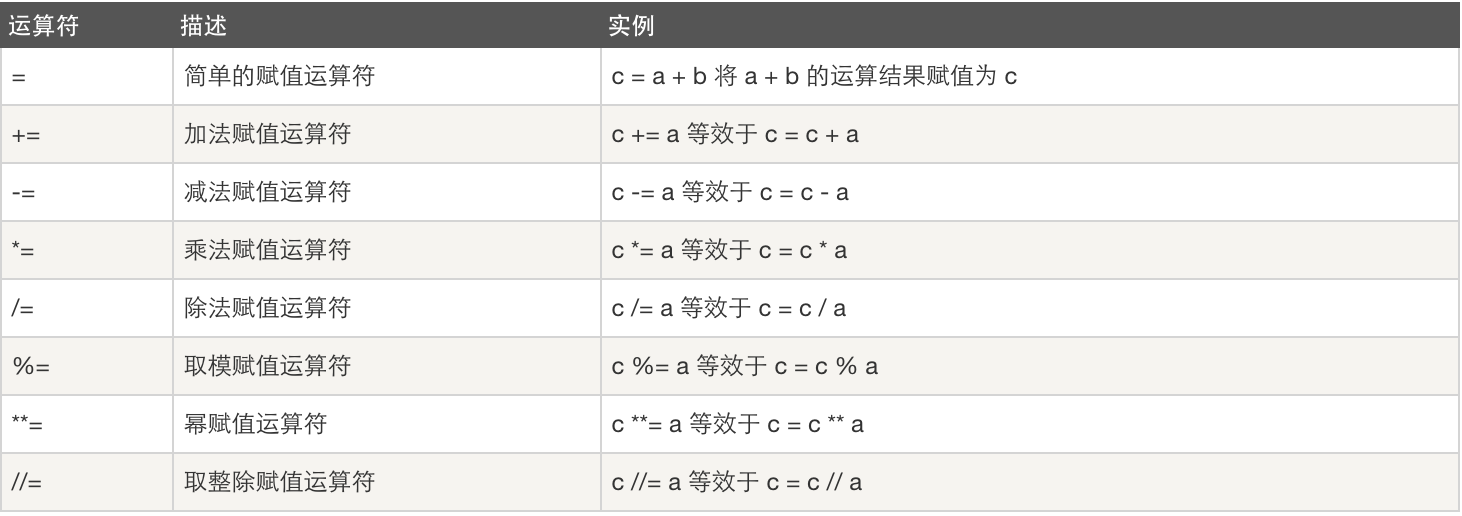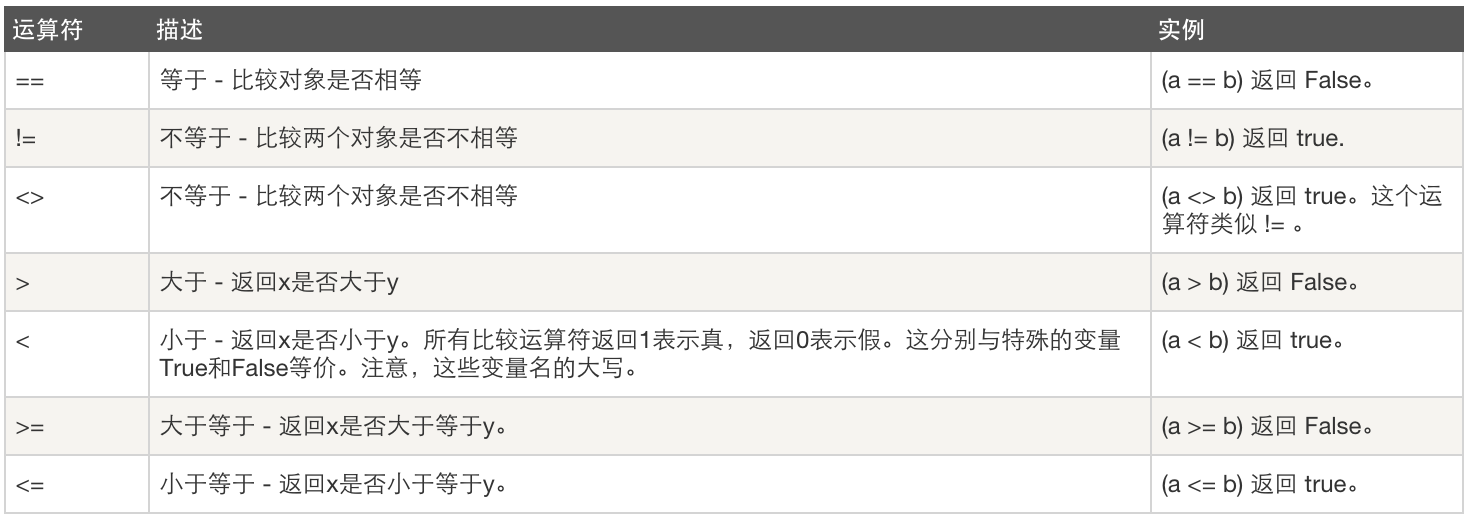python基础之运算符、if条件语句、while循环、for循环
一、运算符
计算机可以进行的运算有很多种,不只是加减乘除,它和我们人脑一样,也可以做很多运算。
种类:算术运算,比较运算,逻辑运算,赋值运算,成员运算,身份运算,位运算,今天我们先了解前四个。
算术运算:
a=10,b=20

赋值运算:

比较运算:

逻辑运算:

二、if循环
-
if / elif / else /
-
# 第一题:让用户输入一个数字,猜:如果数字 > 50,则输出:大了; 如果数字 <= 50 ,则输出:小了。 num = input('请输入一个数字') number = int(num) if number > 50: print('大了') else: print('小了') # int是整型的意思,input输入的内容永远是字符串,若要与数字加减,必须使用int整型 -
and语句表示两侧的条件语句同时成立
if name = '小明' and gender = '男'
三、while循环
- while的基本结构: while A>0: 注意空格和冒号
- while 语句中 break的含义,指中止当前所有循环,stop
count = 1
while count <= 10:
print(count)
if count == 7:
break
count += 1
- while语句中continue的含义,指不在进行本次循环,返回while 执行下次循环,类似于pass ,要点是continue会跳出本次循环,在whilie语句后改变变量,可以利用continue 规避,在if条件语句之后改变变量,陷入死循环,值得注意的跟break的区别,一个是终止所有循环,一个是终止本次。
count = 0 #使用whilie continue 语句 实现1.2.3.4.5.6.8.9.10
while count <= 9:
count += 1
if count == 7:
continue
print(count)
- while语句中whilie else的用法,用处较少,表示不在满足于while条件语句才触发,或 条件= false
- 注意 break continue pass 的使用区别
四、for循环 (固定搭配for * in * :)
name = 'aksbdi1'
for a in name:
print(a)
name = 'aksbdi1'
for a in name:
print(a)
D:\python3.6\python3.6.exe D:/python_code/day01/day04.py
a
k
s
b
d
i
1
示例:break直接退出for循环
name = 'aksbdi1'
for a in name:
print(a)
break
print('123')
结果:
D:\python3.6\python3.6.exe D:/python_code/day01/day04.py
a
示例:continue
name = 'aksbdi1'
for a in name:
print(a)
continue
print('123')
结果:
D:\python3.6\python3.6.exe D:/python_code/day01/day04.py
a
k
s
b
d
i
1
name = 'aksbdi1'
for a in name:
print(a)
continue
print('123')
结果:
D:\python3.6\python3.6.exe D:/python_code/day01/day04.py
a
k
s
b
d
i
1
# 练习题
# 1. for循环打印 “alex” 的每个元素: for > while
# 2. 请打印: 1 - 10
for i in range(1,11):
print(i)
结果:
D:\python3.6\python3.6.exe D:/python_code/day01/day04.py
1
2
3
4
5
6
7
8
9
10
# 3. 请打印: 1 2 3 4 5 6 8 9 10
# 1. for循环打印 “alex” 的每个元素: for > while
# 2. 请打印: 1 - 10
for i in range(1,11):
print(i)
结果:
D:\python3.6\python3.6.exe D:/python_code/day01/day04.py
1
2
3
4
5
6
7
8
9
10
# 3. 请打印: 1 2 3 4 5 6 8 9 10
for i in range(1,11):
if i == 7:
pass
else:
print(i)
结果:
D:\python3.6\python3.6.exe D:/python_code/day01/day04.py
1
2
3
4
5
6
8
9
10
if i == 7:
pass
else:
print(i)
结果:
D:\python3.6\python3.6.exe D:/python_code/day01/day04.py
1
2
3
4
5
6
8
9
10
注意:for和while的应用场景:有穷尽优先使用for,无穷尽用while




